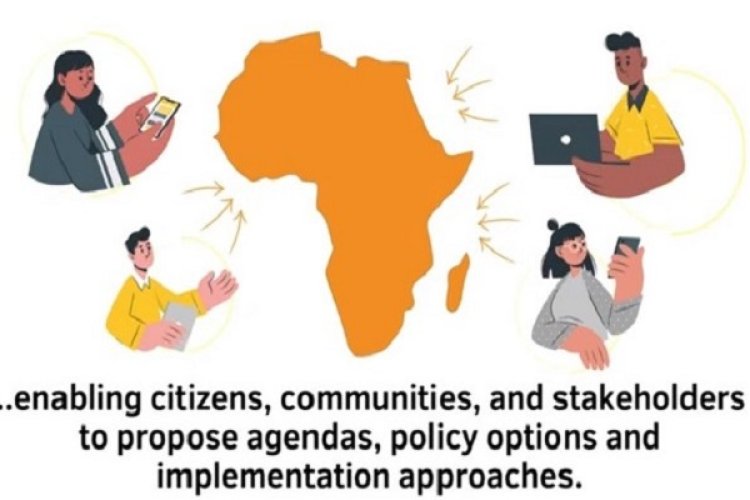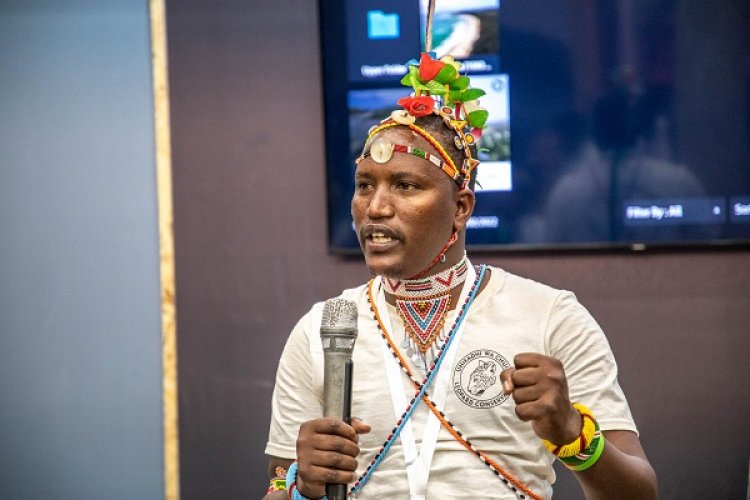Over the decades, Africa citizens’ trust in political leadership and public participation in decision making has oscillated between hope and disenchantment, fueling a disconnect research data suggest left many Africans perceive their governments as distant entities, rather than representative bodies.
However, this is fast changing thanks to the Citizen Engagement Platform (CEP) that let regular people have a say in decisions by their respective countries’ governments and those of African Union (AU) organs.
The AU Development Agency — New Partnership for Africa’s Development (AUDA-NEPAD) which spearheads the initiative liken the platform to “giving a microphone to everyday folks, letting them share what they know and suggesting solutions to problems. They are, therefore, not just spectators but active shapers of their shared destiny.”
“CEP promises to mend the longstanding disconnect between governments and the people, helping leaders understand what life is really like for people and how to make things better by working together,” AUDA-NEPAD officials indicated, adding that CEP emerges as a beacon of inclusion and collaboration.
How it works
CEP operates through different levels of interaction, from providing the public with access to information such as policies, development initiatives and schedules of planned consultations, to the actual consultation stage where citizens give their input and voice their needs.
This not only allows citizens to become partners with the AU, its organs and member States in creating and watching over projects, but also have the final say on big decisions.
The platform has so far been hailed for helping to bridge a longstanding disconnect between citizens and their governments.
According to Afrobarometer, a Pan-African research network that measures public attitudes on economic, political, and social matters, only 46.8 per cent of citizens across the 34 surveyed African countries trust their political leaders.
Analysts say these figures represent a tangible disconnect fueled by infrastructural, educational, and sociopolitical challenges.
Therefore, in absence of platform like CEP and other avenues for citizen participation, it would act as a stumbling block in the quest to achieve Africa’s future, one that rest with its estimated 1.3 billion people projected to hit 2.5 billion by 2050, as envisioned in AU Agenda 2063.
The latter is the continental strategy which aims for an “integrated, prosperous, and peaceful Africa” with people’s hopes and needs at the center.

Tackling future challenges
With projected rise in population, policy makers have been devising ways to harness the vast collective energies of over a billion people currently spread across diverse nations and cultures, and potentially scaling up in the coming decades.
During a recent DataCipation Program Country Consultation in Eswatini, Gideon Imako, Head of the Strategic Planning and Programming Unit who also sits on the Technical team spearheading Agenda 2063, shed light on past achievements and future challenges.
“The success of the African Continental Free Trade Area (AfCFTA) signifies good prospects for the future,” he said.
Besides, officials point to data governance frameworks and related digital policies that were adopted as effective tools in promoting desired active citizen participation.
Also read: Sovereign data control could boost Africa’s ‘gig economy’
The AU Digital Transformation Strategy 2020-2030, for instance, propels the dream of an “integrated and inclusive digital society and economy in Africa” that fundamentally elevates the life quality of Africa’s citizens.
“I call it the youth economy because without the youth, there’s no way we can succeed in implementing our regional digital transformation strategy,” opined Dr. Rejoice Marsego, Director of Research, Science, Technology, and Innovation of Eswatini.
She further highlighted the importance of educating the youth about data protection and the digital economy, emphasizing the recent approval of the Data Protection Act in Eswatini.
Ripple effects
The ripple effects of the CEP can reshape governance paradigms. A transparent and responsive governance mechanism can emerge, where policies are not top-down impositions but collective visions.
The platform has the potential to build a robust foundation of trust, a bridge over the historic chasm separating governments and their citizenry.
More benefits of CEP include the fact that it offers a diverse set of features customized to enhance civic engagement through participation in surveys and polls, commenting on policy drafts, budgets and the likes.
This equally allows feedback that make policies more responsive to citizens’ needs and concerns.
Challenges ahead
There are growing concerns, however, that prevailing challenges around internet access, coupled with high digital illiteracy rates could erode CEP gains, if unchecked.
Even though the African continent is projected to welcome an additional 280.2 million internet users between 2024 and 2028, marking an impressive growth of 45.8 per cent, digital literacy remains a challenge with only 35 per cent proficient in digital tools.
Also read: Costs, connectivity and illiteracy hold back Africa digital economy potential
It will necessitate that leaders embark on digital literacy campaigns and address internet access barriers head-on. Initiatives like public Wi-Fi projects can democratize internet access.
Furthermore, initiatives like Citizen Engagement and Innovative Data Use for Africa’s Development (DataCipation) amplify the significance of data governance and digital policies in Africa’s trajectory.
Supported by the German Federal Ministry for Economic Cooperation and Development (BMZ), DataCipation backs AU organs in quest to intensify citizen engagement.










